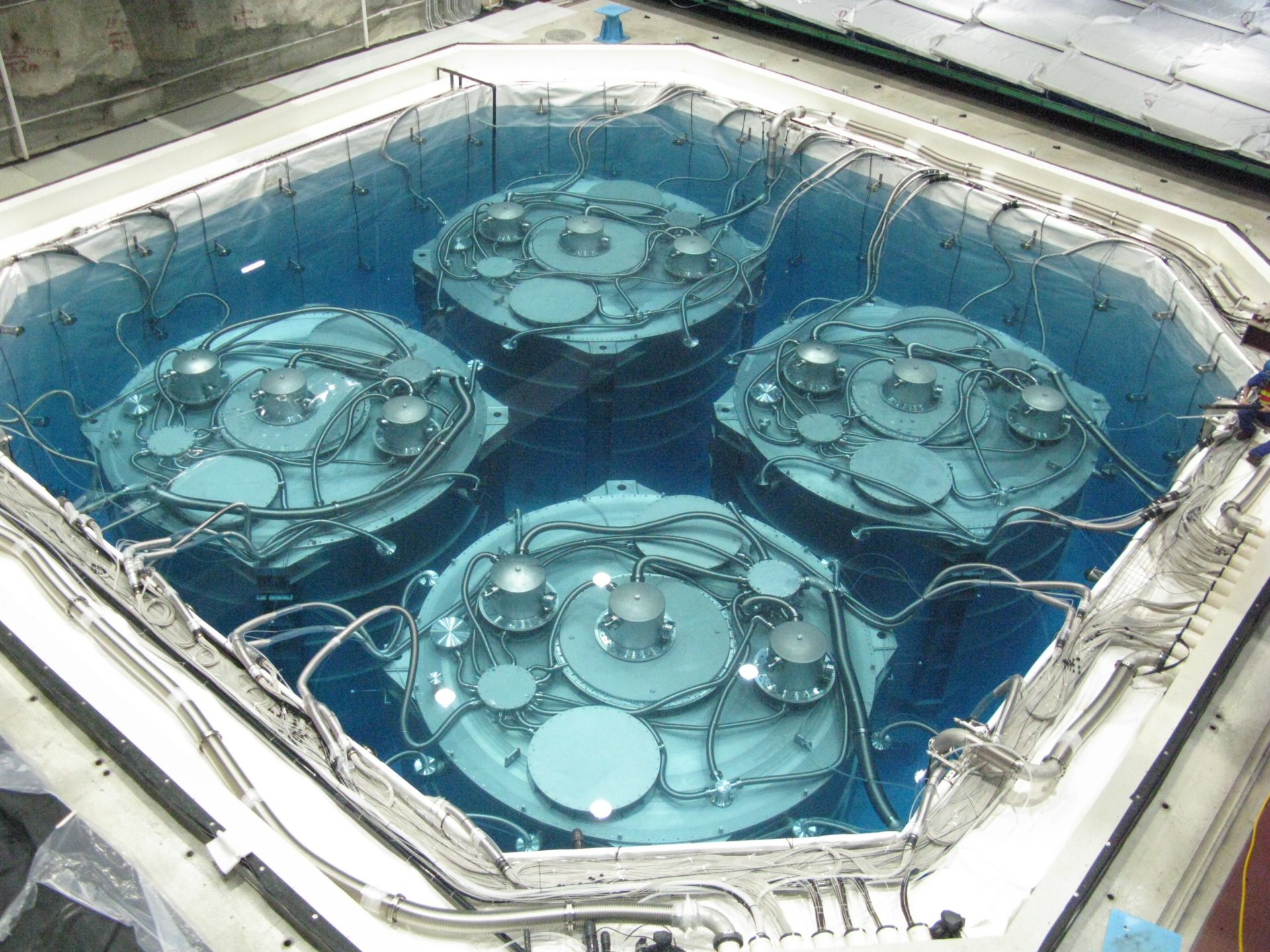Features Archive
Daya Bay Looks at the Reactor Antineutrino Anomaly in a New Way
In a new study, the Daya Bay Collaboration, which includes several members of the Center for Neutrino Physics, measured the relative contributions of the two main fissionable isotopes, uranium-235 (235U) and plutonium-239 (239Pu), to the antineutrino flux from nuclear reactors. After refueling, a typical power reactor runs mostly on 235U, but over time other fissionable isotopes, like 239Pu build up in the reactor fuel. Daya Bay used this increasing rate of 239Pu fission to determine, for the first time, the interaction rates of neutrinos from the two isotopes in their detectors. The results of this study turned out to have interesting and unexpected consequences for a vexing problem known as the Reactor Antineutrino Anomaly.
The Reactor Antineutrino Anomaly refers to observation, first made in 2011, that the rate of antineutrinos observed in reactor neutrino experiments falls short of theoretical expectations by about 6%. This observation led to speculation that the missing neutrinos may be due to a new type neutrino oscillations involving the hypothetical sterile neutrino. This new result from Daya Bay, which finds that the missing antineutrinos are almost all associated with the 235U flux and are not spread evenly across both isotopes, throws cold water on that speculation, and instead suggests that the anomaly is due to errors in the modeling of the 235U antineutrinos.

|
| The four identical antineutrinno detector in the Daya Bay far hall. |
Archived Feature Articles
- Shunsaku Horiuchi Solves Dark Matter Mystery (08/27/20)
- Rebekah Pestes Wins the 2020 Scharff-Goldhaber Prize (07/02/20)
- Neutrino Anomalies in Antarctica Explained by Prof. Ian Shoemaker (09/09/20)
- Professor Huber Details How Antineutrino Detectors Could Aid Nuclear Nonproliferation (03/12/20)
- CNP Researchers Publish Neutrino Observation with the Mobile Neutrino Detector (03/11/20)
- CUORE Sets New Limits on Neutrinoless Double Beta Decay (03/11/20)
- CNP scientists Win Cosmology Prize for Research About Dark Matter and Dark Energy (04/29/19)